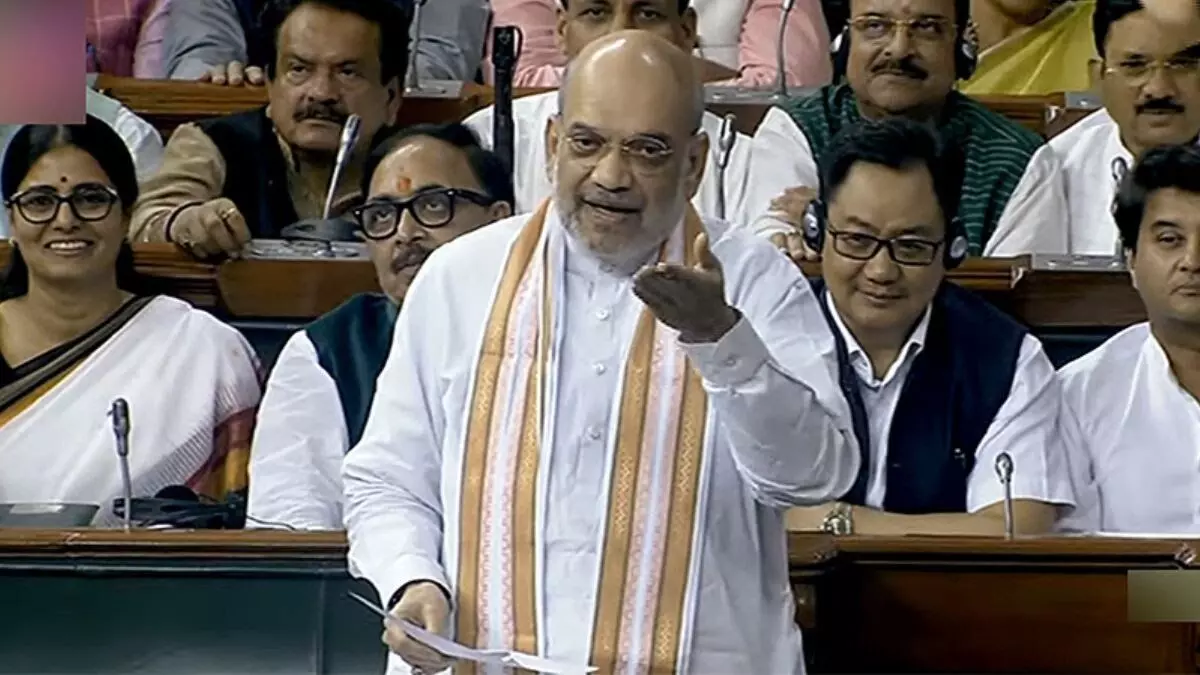Centre presents 3 bills to replace 'colonial-era laws' under IPC, CrPC, Indian Evidence Act
Shah introduced the Bharatiya Nyaya Sanhita (BNS) Bill, 2023; Bharatiya Nagarik Suraksha Sanhita (BNSS) Bill, 2023; and Bharatiya Sakshya (BS) Bill, 2023
By Newsmeter Network
New Delhi: Home Minister Amit Shah on Friday introduced three bills in the Lok Sabha to replace colonial-era laws and overhaul the current criminal justice system.
Shah introduced the Bharatiya Nyaya Sanhita (BNS) Bill, 2023; Bharatiya Nagarik Suraksha Sanhita (BNSS) Bill, 2023; and Bharatiya Sakshya (BS) Bill, 2023 that will replace the Indian Penal Code, 1860, Criminal Procedure Act, 1898, and the Indian Evidence Act, 1872 respectively.
He said the changes were done to provide speedy justice and create a legal system that keeps up with the contemporary needs and aspirations of people. The home minister asserted that the proposed laws will transform the country’s criminal justice system and protect the rights of all Indian citizens.
Capital punishment for mob lynching, rape of minors
Among its many provisions, the BNS Bill has the powers to repeal sedition charges, and award maximum capital punishment for crimes such as mob lynching and rape of minors, the home minister said. The bill also has provisions to provide first-time community service as one of the punishments for petty offences.
The bill also lists new offences such as acts of secession, armed rebellion, subversive activities, separatist activities or endangering the sovereignty or unity and integrity of India.
“I can assure the House that these bills will transform our criminal justice system. The aim is not to punish but to provide justice. Punishment will only be a deterrent for stopping crime,” Shah said, while noting that the laws made by Britishers were full of signs of slavery aimed at punishing those opposed to their rule, and not for delivering justice.
The home minister also urged Lok Sabha Speaker Om Birla to refer the three bills for examination by the Parliamentary Standing Committee on Home Affairs.
The offences against women and children, murder and offences against the state have been given precedence, Shah said, adding that various offences have been made gender-neutral.
While highlighting the importance of the BNSS Bill, Shah said, “The experience of seven decades of Indian democracy calls for a comprehensive review of our criminal laws, including the Code of Criminal Procedure and adopting them in accordance with the contemporary needs and aspirations of the people.”
A statement of object for the BNSS Bill stated that the government’s mantra was “Sabka Saath, Sabka Vikas, Sabka Vishwas and Sabka Prayas.” The statement reiterated its commitment to ensuring speedy justice to all citizens in conformity with these constitutional democratic aspirations.
“The government is committed to making a comprehensive review of the framework of criminal laws to provide accessible and speedy justice to all,” it added.
Provisions for in-absentia trials
The BJP hailed the three bills introduced in the Lok Sabha as ‘pro-people’ and ‘pathbreaking’ which will remove the colonial legacy of the past.
Senior party leader and former law minister Ravi Shankar Prasad told reporters that the changes prescribed by the proposed legislation, introduced by the home minister were long overdue.
Complimenting prime minister Narendra Modi and Amit Shah for the bills, which have been sent to the parliamentary standing committee for scrutiny, Prasad lauded the proposed legislation’s focus on the use of technology, prioritising women's safety, defining organised crimes and other measures to ensure speedy justice.
“They remove the colonial legacy and are in tune with current realities of India,” he said, noting that provisions for in-absentia trials will ensure that fugitives like Dawood Ibrahim can be tried.
The existing laws and provisions date back to the 19th century when they were enacted to subjugate Indians and protect the British rules, he said. The bills keep the interest of citizens foremost, he said.
Inputs from PTI